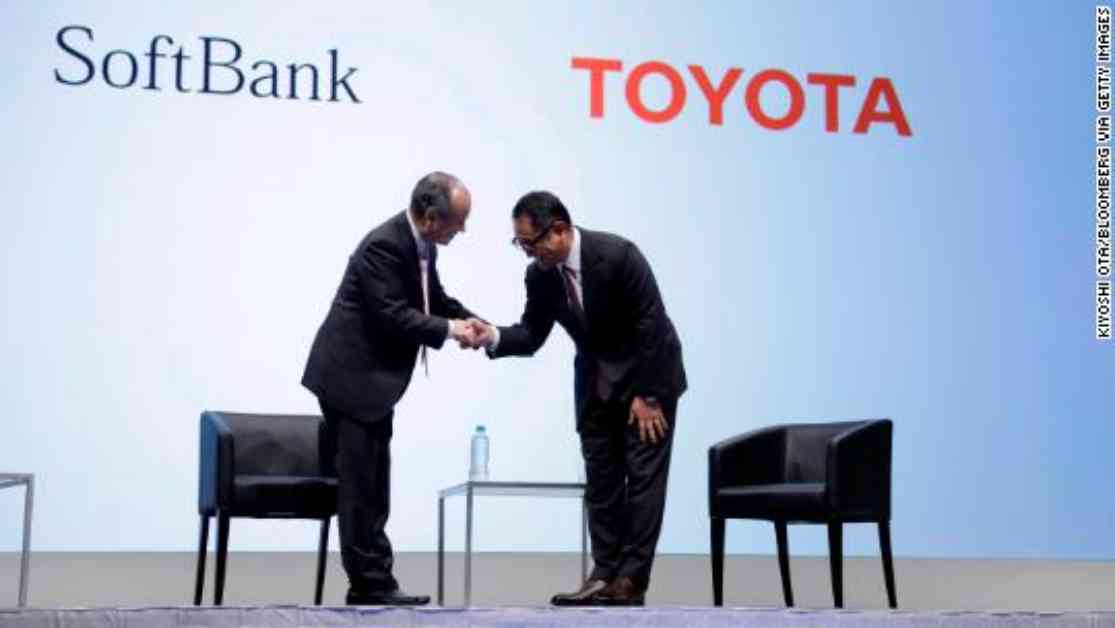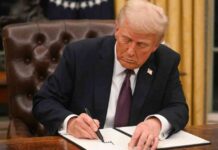SoftBank and Toyota have joined forces to revolutionize the world of transportation with autonomous vehicles and other innovative technologies. The Japanese giants have come together to establish a new joint venture named Monet, which aims to create new services using driverless-car technology, such as mobile convenience stores and food delivery vehicles that prepare meals while on the move.
In this collaboration, SoftBank will have just over half ownership of Monet, while Toyota will hold the remaining stake. The name “Monet” is derived from “mobility network” and is not a reference to the famous French painter Claude Monet. The announcement of this groundbreaking project was attended by Toyota President Akio Toyoda and SoftBank CEO Masayoshi Son, marking a rare joint appearance by the leaders of two of Japan’s largest global companies.
The initiative was born out of Toyota’s desire to form a Japanese alliance with SoftBank to keep pace with international competitors who are making significant advancements in autonomous driving technology. Major car manufacturers and tech companies worldwide, including Alphabet and Baidu, are heavily investing in self-driving vehicles, which have the potential to disrupt the auto industry and revolutionize the ride-hailing business.
Masayoshi Son, the billionaire founder of SoftBank, oversees a vast empire of AI companies, internet ventures, and ride-hailing startups, enabling the collection of extensive data on traffic patterns, passenger requests, and transportation trends. By leveraging SoftBank’s technological expertise and data capabilities along with Toyota’s proficiency in vehicle manufacturing, Monet aims to address challenges posed by Japan’s aging population and shrinking workforce.
Over the next decade, Monet plans to introduce services like self-driving buses for elderly transportation, medical shuttles with onboard exam facilities, and mobile offices. Initially focusing on the Japanese market, the venture aims to expand globally in the future. SoftBank has already invested in autonomous driving through its Vision Fund, committing billions to GM Cruise, General Motors’ self-driving car unit. Similarly, Honda announced a substantial investment in GM Cruise, highlighting the industry’s shift towards autonomous vehicles.
Toyota has also intensified its efforts in developing driverless cars, establishing a new company dedicated to self-driving vehicle research and development. With a significant investment earmarked for creating a commercially viable autonomous car, Toyota is positioning itself at the forefront of this technological revolution. Both SoftBank and Toyota have forged partnerships with leading ride-hailing companies like Uber, Didi Chuxing, and Grab, underscoring the evolving relationship between automakers and tech firms.
The collaboration between SoftBank and Toyota signifies a significant shift in their dynamic, as Toyota now seeks assistance from SoftBank after turning down a proposal from them two decades ago. What was once a small company reaching out to a corporate giant has now transformed into a scenario where the carmaker is seeking technological expertise and innovation from SoftBank. This partnership exemplifies the changing landscape of the automotive industry and the pivotal role that technology plays in shaping its future.





















